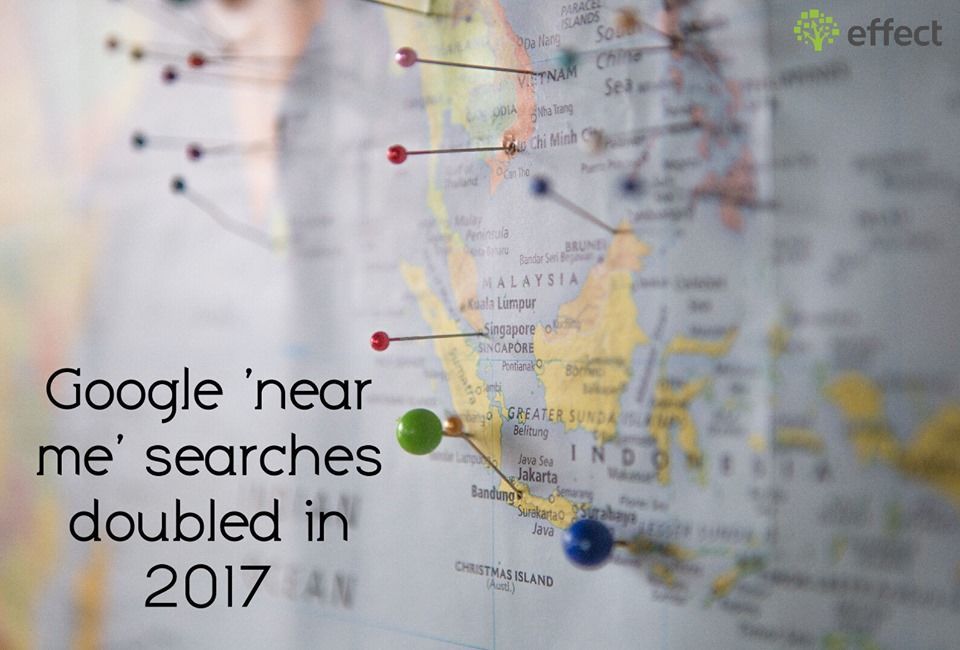When we have a marketing consultation with local business owners, the discussion almost always comes around to social media marketing. Most people we talk to don’t really have time for social media, yet they have this vague, uneasy feeling that they are missing out on market share. They’ve heard that “social is the way to go” or “you have to have a social strategy to succeed online,” but most of them don’t really know if that’s true or where to start.
Common Social Media Questions
Almost without fail, these three questions come up in some form during a marketing consultation.
- Should our business post on social media? (Is it worth it?)
- What is the ROI? (How much will it cost?)
- What do I need to do? (Can you do it for me?)
The answers to these questions depend on a number of factors, but the bottom line is that social media marketing won’t be profitable if you don’t understand your customers and how they shop.

Scenario A – Your Local Business NEEDS a Social Media Strategy
Social usually equates to fun, and if your product or service is pleasure-centric, then you really should market on one or more social media channels.
- Restaurants
- Theme Parks
- Women’s Clothing Boutiques
- Museums
- Theaters
- Spas
After all, 3.2 billion people use social media regularly (Emarsys, 2019) and 90.4% of all Millennials actively use social media (Emarketer, 2019). According to GlobalWebIndex, 54% of social browsers use social media to research products.
That’s a lot of exposure!
How Often Should You Post?
The amount of “work” you will need to do to create a following and reach new people depends on the loyalty of your customers (and reviews). People will expect you to post frequently and to offer them incentives for sharing and participating.
Knowing which platform to use and how often to post depends on your customers and their buying habits. There are multitudes of stats that show the best times to post and what type of content to share for the best engagement.
For instance, Instagram and Pinterest are great for visual appeal, and FaceBook offers low-cost advertising that can be targeted by demographics. Twitter helps with brand identity and personalities and LinkedIn can foster business relationships. Most companies will focus their social media efforts on two or three platforms for the best results.
Scenario B – Experimental – Finding the Right Social Media Platform
OK… we’ve shown how social media can benefit local retail businesses, but what if your company is not pleasure-centric (e.g. a septic pumping company) or you are a B2B company?
If so, then social media may still be an appropriate marketing channel, but you must make sure you move forward with a strategic social marketing plan.
B2B social media channels are NOT the same as B2C.
What do we mean?
Honestly, the local serviceman won’t need to Tweet every hour, and there is probably no need for pest control companies to spend a lot of effort on Pinterest. What these companies do need to do is make sure their Google Business Listings are up-to-date and actively solicit reviews for both Google and Yelp.
I know… you probably don’t think of your Google Business Listing as “social media.”
However, your business now has the ability to publish posts on your Google Listing. You can promote specials, link back to your site, and add photos. Your customers can ask questions, leave reviews, and even chat with you in real-time. Anymore, your Google Business Listing is “social,” and it’s also one of the more likely places that people will find your local service business.
How Does It Work?
We know of a local painting company that offers a 4% discount for any review left for them on one of five different sites (Yelp, Facebook, Google, Bing, or Home Advisor).
This has resulted in more reviews than any other company in their local area. They still have to perform well in order to get GOOD reviews, but most people need some motivation to take the time to leave positive remarks.
When you consider that social media is the modern-day “word-of-mouth” referral system, you can see that reviews are extremely important for service businesses if they want to generate new business.
There are several good services available for generating reviews, and your web developer can integrate one of those services with your social media platforms and your website.

Scenario C – Social Media Marketing May Have a Lower ROI than Other Efforts
Don’t chase rainbows if there is no pot of gold sitting at the end! Social media is NOT always the best option for your business, especially if you have limited resources available.
Don’t prioritize social media if your organization:
- Doesn’t have goals that social media can help meet now or in the near future
- Doesn’t have the time or resources to do a whole-hearted social media effort
- Finds that the costs outweigh the expected benefits
The truth is that social media is just one more tool for promoting your business. That doesn’t mean it’s necessary for your local business to succeed. If you have limited resources, consider whether an SEO strategy will provide greater returns.
The Bottom Line Is the ROI
This seems obvious but any marketing strategy must provide good returns or it’s a failure. Whether or not social media will benefit your company depends on your goals.
- What will your company gain by being social this year, 5 years, and 10 years down the road?
- When does it make sense for your company to become social and with which audiences?
- How can you make it enjoyable for your audiences?
The first step in determining the ROI is to establish a baseline, or internal audit, of where your organization stands. You need to take an inventory of a variety of business variables (both financial and non-financial) that you can use to determine social media’s impact on the bottom line.
It is best to establish the baseline before implementing your social media strategy. However, if you are already engaging in social media it is still important to establish a baseline of where you stand right now. That way you can identify future successes and opportunities for improvement.
Although ROI doesn’t equal analytics, variables such as Twitter followers and web traffic are important to measure. For example, it would be important to analyze how the number of Twitter followers affects web traffic and how increases in web traffic lead to increased sales.
Establishing Your Social Media Baseline
Consider these variables when you establish your baseline.
- Average monthly sales
- Average dollar amount per transaction
- Blog comments per month
- Cost to acquire a new customer
- Current YTD sales
- Customer conversion ratio
- Facebook friends
- Keywords ranked for on the first page
- LinkedIn connections
- Number of new customers per month
- Monthly transactions
- Monthly unique visitors
- Number of links from social bookmarking sites
- Press mentions per month
- Previous yearly sales
- RSS subscribers
- Social mentions per month
- Twitter followers
- YouTube channel subscribers
- Google Business Listing Metrics
After creating your baseline, monitor your metrics each month and notate changes.
2 Musts for all Local Businesses Regarding Social Media
Because local listings and credibility are important, there are two things all businesses should do when it comes to social media. You should do these two things even if they don’t think social media will benefit your company.
- Claim your Google Business Listing and update the information monthly. This is especially important if you are a local business.
- Your company needs a Facebook Page. Anymore, almost all businesses have some sort of presence on Facebook. Update it about once or twice a month, unless it is one of your primary marketing channels.
Apart from that, do what makes sense for your business regarding social media. Integrate it, as much as possible, with your other marketing strategies, such as SEO and PPC, and keep re-evaluating its importance. You may find that down the road a social media strategy begins to make more sense for your company.
Should You Hire a Social Media Marketing Company?
If your business fits Scenario A, consider hiring a social media marketing agency or an in-house social media expert. Essentially, this person or group will function as your sales department. They will handle the day-to-day postings, social media ad campaigns, and social engagement with your clients. Look for someone who can write and knows graphic design, in addition to marketing experience.
For other companies, you might want to designate an employee to work with a hired social media consultant. The consultant can analyze your campaign results and traffic and offer suggestions for a better social media strategy. Your in-house person can do day-to-day postings and handle client interactions. Consider hiring a digital marketing agency that specializes in SEO, content marketing, and social media since all three work together.
Effect Web Agency partners with businesses around the globe to help them get more from their digital marketing efforts. If you are considering whether or not social media marketing is right for your business, contact Effect for a free consultation.

A comprehensive web strategy plays an essential role in the overall marketing plan. Not only does Effect create the online experience, we empower companies with tools to track results and measure ROI across all of their media mix.
Steve Schmidt, CEO






